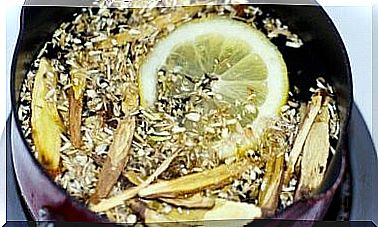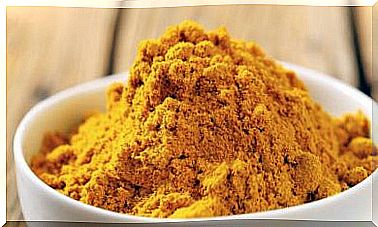7 Symptoms That Indicate A Heart Murmur
There are many people who suffer from heart murmurs. Although most of the time it is harmless, it is worth paying attention. The heart murmur is due to an irregular blood flow that gives rise to a particular sound as it passes through the blood vessels and valves of the heart: a murmur.
Heart murmurs can be classified in different ways according to the degree of incidence, most being harmless, as we have already said. Sometimes, however, they can hide more serious heart abnormalities, so it is important not to neglect them and to know their symptoms. We invite you to read the information below.
1. What is the origin of a heart murmur?

- A heart valve that has a problem – a heart murmur, for example, can originate from an enlarged valve. A congenital problem that may require intervention in the long run. Sometimes diseases such as atherosclerosis can also cause this problem; for this reason, it is important to take care of yourself and establish periodic check-ups with your cardiologist.
- Anemia : Did you know that even anemia can cause a heart murmur? Faced with a lack of red blood cells, and therefore low levels of oxygen in the blood, the heart is forced to pump faster, which could cause a heart murmur. Pay attention to your iron levels.
- Problems between two heart cavities : particularly due to communication between the two atria or between the two ventricles of the heart. The origin can also be congenital.
- Arteriosclerosis : it is a disease to be considered as it affects both the arteries and the heart valves. It damages them by causing a narrowing that gives rise to an abnormal rhythm in the blood circulation and emits a very particular kind of whistling in the arteries, namely the heart murmur.
- Other Related Problems : Sometimes a fever or a thyroid problem can cause a heart murmur. Remember this.
2. Symptoms of a heart murmur

It is common to associate the symptoms of a heart murmur with fatigue. In addition, in the case of women, heart problems usually arise without much attention being paid to them. Factors such as stress, worries or typical daily exhaustion mean that we don’t care about symptoms that are labeled as “normal”, but which in reality are not. It is important to know how to listen, to take care of yourself and not to neglect any aspect related to health. Take notes:
- When you make a little effort, notice how your heart rate quickly accelerates. Climbing stairs, jogging to take the subway, or getting up in a hurry in the morning will immediately cause you fatigue and an increased pulse. It is the most distinctive feature.
- It is difficult for you to breathe. For example, take a short walk and notice that you need to stop because you are short of breath.
- You experience chest pain, like a burning plate attached to this part of the body every time you make an effort.
- In very severe cases it often happens that, after climbing stairs or walking for a long time, the lips and fingertips acquire a bluish tint. It would be a symptom of high oxygen deficiency in the blood, known as cyanosis, and which you should therefore report to your doctor.
- You have swelling and continuous water retention.
- During any small exercise, the veins in the neck swell particularly.
- You also have to pay close attention to the little ones. If you see that your children are not growing as they should for their age and are always very tired, tell your pediatrician.
3. Can a heart murmur be prevented?

You must consider that some heart murmurs are due to congenital problems, so the most appropriate measure in these cases is to follow the doctor’s advice and recommendations. Maintaining a good quality of life and healthy habits will allow you to prevent many heart problems, so it is never too much to follow these guidelines:
- Keep your cholesterol levels under control . In this way, you can avoid hardening of the veins and arteries, and you will get a correct blood circulation;
- Keep your iron levels under control to avoid suffering from anemia. Do not exclude from your diet products rich in iron and vitamin C, which help you to prevent this ailment;
- Follow a varied and balanced diet, limiting the consumption of fats, processed or industrially produced foods, refined flours and salt;
- There are infusions that are very suitable for taking care of heart health, such as those based on horsetail, lemon balm, valerian, hawthorn, rosemary and rue, or even green tea. You will love them!
- A little mild physical activity every day. If you don’t have any serious heart problems, don’t hesitate to do some physical activity that keeps your heart active. A 20-minute walk or swim is enough;
- Lastly, and most importantly, set up periodic checkups with your cardiologist to rule out the possibility of any problems. Your health deserves it.









